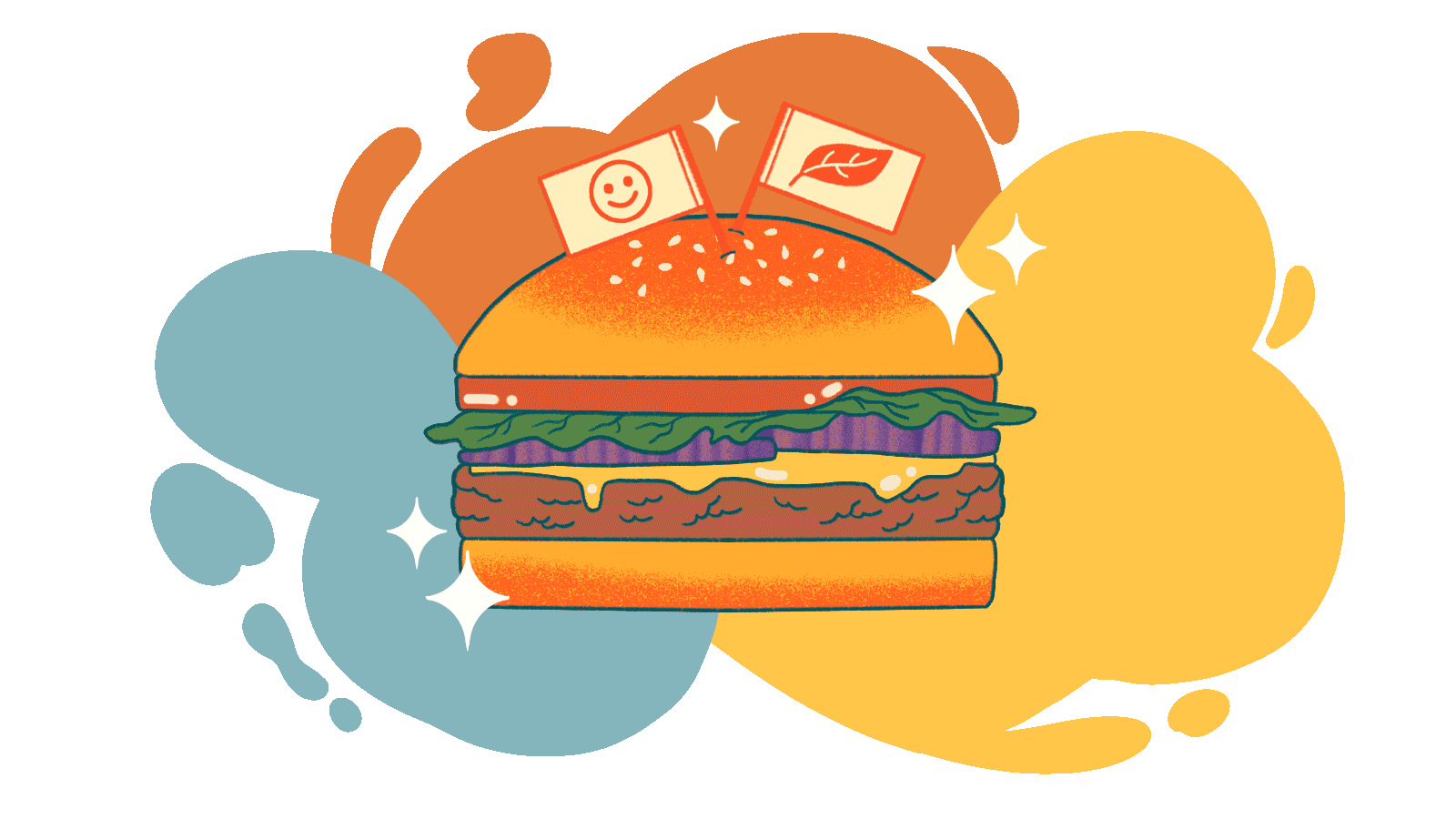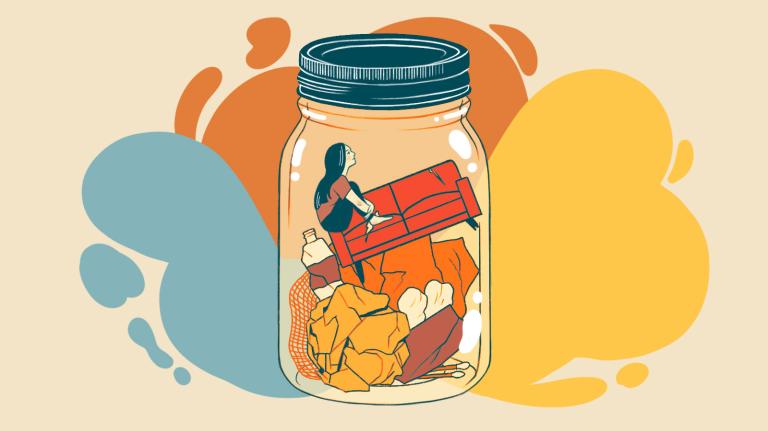This story is part of the Grist arts and culture series Remember When, a weeklong exploration of what happened to the climate solutions that once clogged our social feeds.
The camera pans slowly across a close-up of crispy, golden McDonald’s fries, standing tall like ears of corn. “We used to think this was the best thing a plant could grow into,” a deep voice proclaims during the commercial. “And then we made this.” Into view emerges a glistening cheeseburger topped with lettuce, tomatoes, and pickles. “Introducing the new McPlant,” the narrator continues, “made with the first plant-based patty worthy of being called a McDonald’s burger.”
The ad, from early 2022, seemed like a sign that plant burgers had made it big. Six years after they arrived on the market, America’s biggest restaurant chain had endorsed them. The news garnered cautious praise from some environmental advocates: Not only could meatless meat patties reduce animal cruelty, but they also promised to ease climate change. They looked, tasted, and bled like beef but had none of the drawbacks — no cows that burp methane, no butchered animals, and barely any cholesterol.

By most metrics, plant-based meat has been a resounding success. Brands like Impossible Foods, Beyond Meat, and Gardein are sold in thousands of grocery stores and restaurants across the country. Dollar sales in the U.S. have tripled over the past decade. Ten years ago, you couldn’t buy fake-blood burgers anywhere. Today, they’re on the grill at Burger King, Carl’s Jr., and other restaurants all over the world. When Beyond Meat went public in 2019, its stock climbed more than 700 percent. The buzz was compared to that of Bitcoin.
Yet a tour of recent headlines suggests that something has gone awry. Last year, Forbes described a “lifeless market for meatless meat.” The Guardian asserted that “plant-based meat’s sizzle fizzled in the U.S.” A Bloomberg headline in January went further, declaring that fake meat was “just another fad.” As for the McPlant, McDonald’s erased it from its menu in the U.S. last August, less than a year after it started a trial run.
The industry had hit its first big stumbling block. In 2022, U.S. plant-based meat sales declined for the first time — 8 percent by volume. Beyond Meat, a behemoth in the sector and the supplier of McPlant patties, saw its stock price plummet 94 percent from its peak in 2020 as sales slid more than 20 percent last year. The company laid off one-fifth of its employees last fall. Impossible Foods — Beyond’s biggest rival — has fared better, but it also ended up laying off roughly 16 percent of its workforce this spring. The layoffs were intended to bring costs “more in line” with revenue and to position the company for “sustainable, balanced growth over the long term,” according to a statement from Impossible.
“Today, basically, we’re in a little bit of this trough of disillusionment,” said T.K. Pillan, co-founder and chairman of Veggie Grill, one of the country’s biggest plant-based food chains and the first to sell the Beyond Burger. “Expectations and hype got fueled really high.”
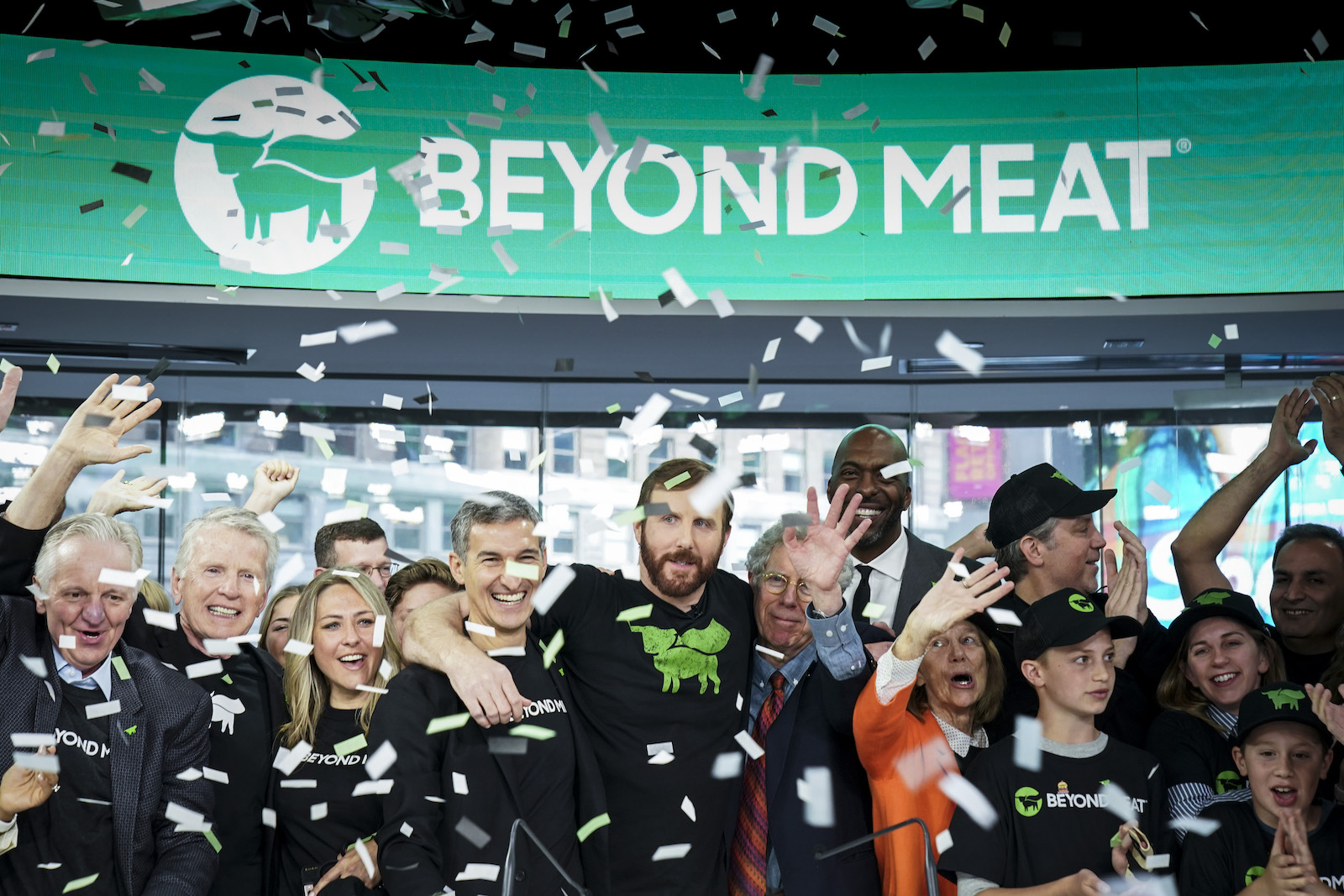
Beyond Meat and Impossible Foods said their inventions could do something earlier brands — Tofurky, Boca, Gardenburger — couldn’t. Although the two companies make discrete products with different ingredients and characteristics, they are often talked about in one breath because they share a novel and uncanny resemblance to meat. Impossible’s plant burger could compete with beef even among “uncompromising meat consumers,” Pat Brown, the founder of the company, claimed during a TED Talk in 2015.
“People around the world love to eat meat. And who can blame them? It’s delicious,” Brown said. “The problem isn’t that people love meat. The problem is how we produce it.”
As Brown described a “wildlife holocaust” caused by clearing forests around the world for agriculture, a woman behind him flipped an Impossible Burger on a griddle. “Cows aren’t getting any better at turning plants into meat,” Brown said. “And they never will. We’re getting better at it every day. And we’re going to keep getting better.”
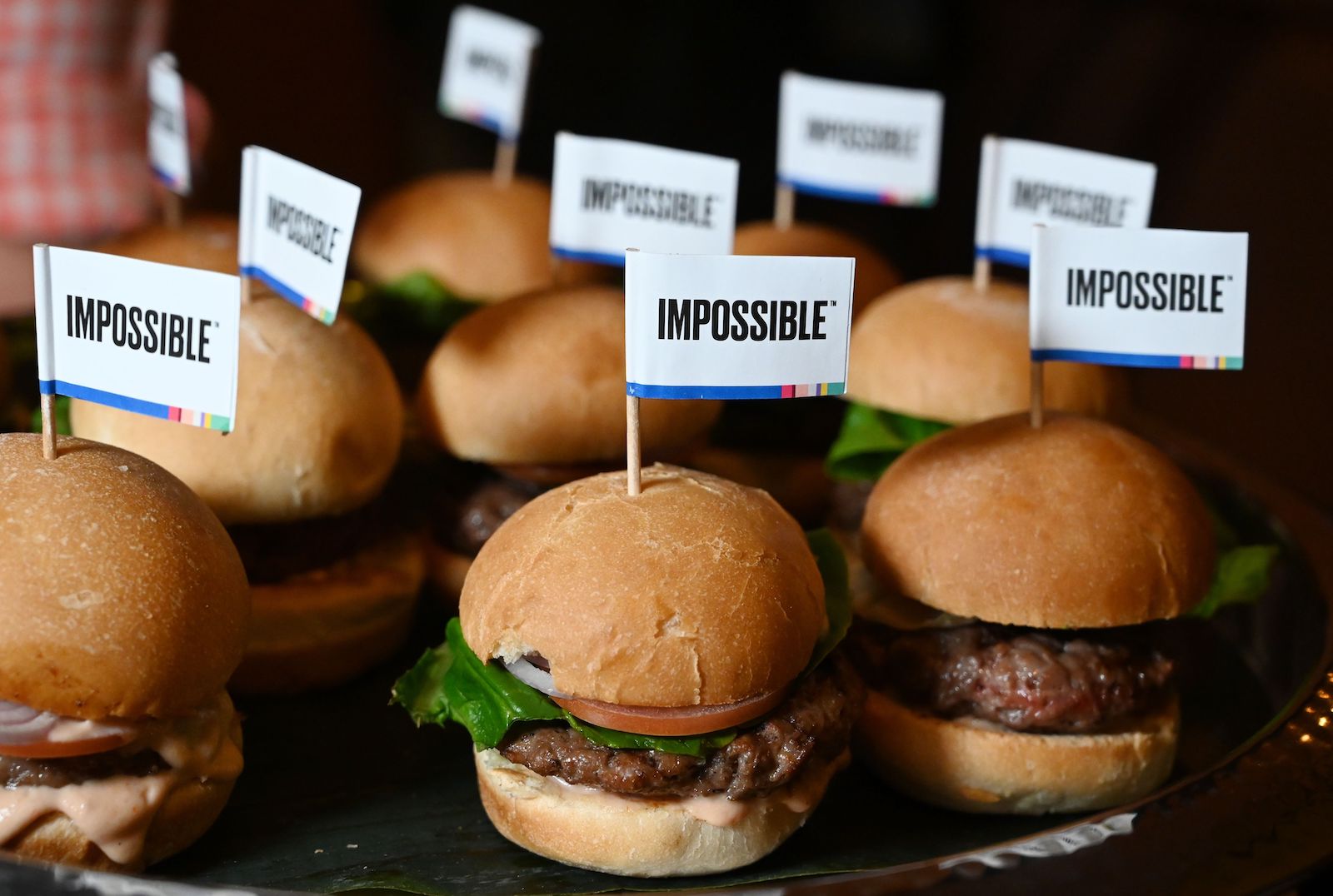
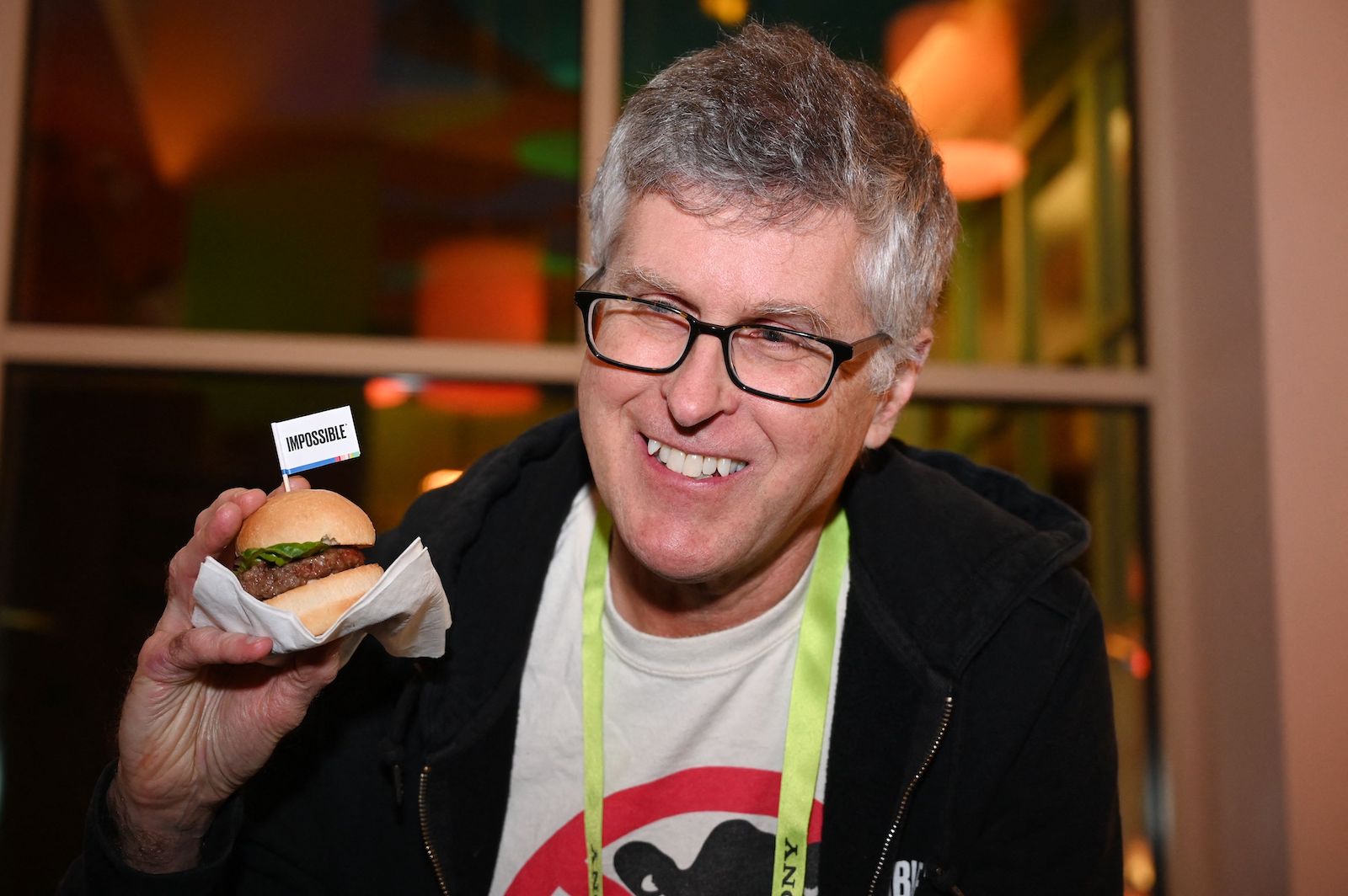
Climate advocates hoped that this new class of faux meat could lure people away from cow meat. Livestock contribute roughly 14 percent of the world’s greenhouse gas emissions, and factory-farmed cattle are the worst offenders. “I know it sounds insane to replace a deeply entrenched trillion-dollar-a-year global industry that’s been a part of human culture since the dawn of human civilization,” Brown said in the TED Talk. “But it has to be done.” When he was interviewed by the New Yorker in 2019, Brown said Impossible could help end animal agriculture by 2035.
Today, that ambitious goal sounds even more ambitious. Plant-based patties haven’t displaced real meat yet — the vast majority of people who buy plant burgers also buy animal protein, and they don’t seem to be buying less of it. According to a survey last year by the consulting firm Deloitte, half of U.S. shoppers have already purchased plant-based meat, but the market has reached a “saturation point.” The report found that people don’t view the food as favorably as they once did. So what happened?
There’s no shortage of theories. For starters, the burgers are made by machines. While they’ve been fine-tuned to include less fat and cholesterol than real beef, early products were full of sodium and used additives for taste and texture, like sugar and carrageenan — an extract from seaweed that’s the subject of health concerns among some scientists and nutritionists. Companies like Beyond and Impossible have tinkered with recipes to get rid of additives and make fake meat more nutritious, but the fact remains that their burgers are lab creatures.
“The big problem with plant-based meats is they fall into the category of ultra-processed,” said Marion Nestle, a longtime food studies professor at New York University. Even though plant-based meat might be healthier than red meat on a nutritional basis, it’s still part of a broader class of processed foods, including cereal and sodas, that have been linked to poor health outcomes. “There’s just tons of evidence that these are the kinds of foods to avoid,” Nestle said. “The ingredient list is lengthy and very impressive, and that has been the basis of attack by the meat industry.”
Soon after Beyond and Impossible burgers took off, the Center for Consumer Freedom — a corporate-backed advocacy group perhaps best known for defending the tobacco industry — launched a campaign targeting plant-based meats. “Fake meat or dog food?” read a full-page ad the group placed in the Los Angeles Times in 2019. One of the organization’s main tactics has been to highlight that plant burgers come from factories, not farms.

“The meat industry really made a concerted effort to make people think [plant-based meat] is not healthy,” Pillan said. “They do a great job. They’re good marketers. They’re good lobbyists.”
The industry’s push came at a convenient moment: Around the same time, a health movement promoting “clean” foods — meat and vegetables that aren’t processed — entered the mainstream. “The meat alternatives have run up against this other trend,” said Jayson Lusk, an agricultural economist at Purdue University. Lusk often hears the refrain: “If I wanted plants, I’d just eat plants.”
Plant-based meat now finds itself in a strange spot, simultaneously seen as healthy and unhealthy, with attitudes starting to tip toward the “junk food” designation. “Healthfulness” was the top reason people bought plant-based meat in 2021, according to an International Food Information Council survey. That same year, a Deloitte survey found that 68 percent of buyers thought the novel burgers were healthier than beef. In 2022, that figure slipped to 60 percent.
Even more than health perceptions, “Taste and price are the two main reasons people don’t buy” plant patties, said Tessa Hale, director of corporate engagement at the Good Food Institute, a think tank that promotes alternative meats. “They don’t want to try it because they just have this idea that it’s going to taste bad,” Hale said.
Or they simply can’t afford to shell out for a pricier product, made even more expensive by inflation. Plant-based meats often cost two or three times more than their cow-based counterparts at the grocery store. In 2019, the average retail price of meat alternatives was $9.87 per pound, while that of conventional meat was $3.53. Today, Walmart sells Beyond Burgers at $9.68 per pound and beef patties for as little as $3.94 per pound. Some compare the cost gap to that between electric and gas-powered vehicles: Until prices come down, the premium, climate-friendly option won’t be widely adopted.
For each of the top concerns — price, health, and taste — proponents say there’s reason to be optimistic. They observe that inflation has been worse for real meat than the products that imitate it. As production scales up and new technologies get perfected, the price curve for plant-based foods “is expected to keep on coming down,” said Chris Bryant, an alternative proteins researcher in the United Kingdom.
Impossible Foods cut sale prices by 20 percent in 2021, and Beyond Meat has said it plans to sell at least one of its products for less than the going price of meat by 2024. In the Netherlands, growing demand and government support for faux meat reportedly have helped fake burgers achieve price parity with real ones. “We seem to be at the tipping point,” Bryant said.
As for the health question, Pillan acknowledged that plant-based burgers aren’t always the healthiest option — next to, say, a salad or lentils. But he said what matters is that they’re healthier than beef. They have less cholesterol and fat, and some research suggests they lower risk of heart disease compared to red meat.
A Beyond Meat spokesperson cited a similar case made by the company’s chief executive, Ethan Brown, on an earnings call in February. Brown criticized the “drummed up misperception that our products are overly processed and utilize complex ingredients” and pointed to a study suggesting that eating Beyond’s products instead of animal meat could lead to lower cholesterol levels.
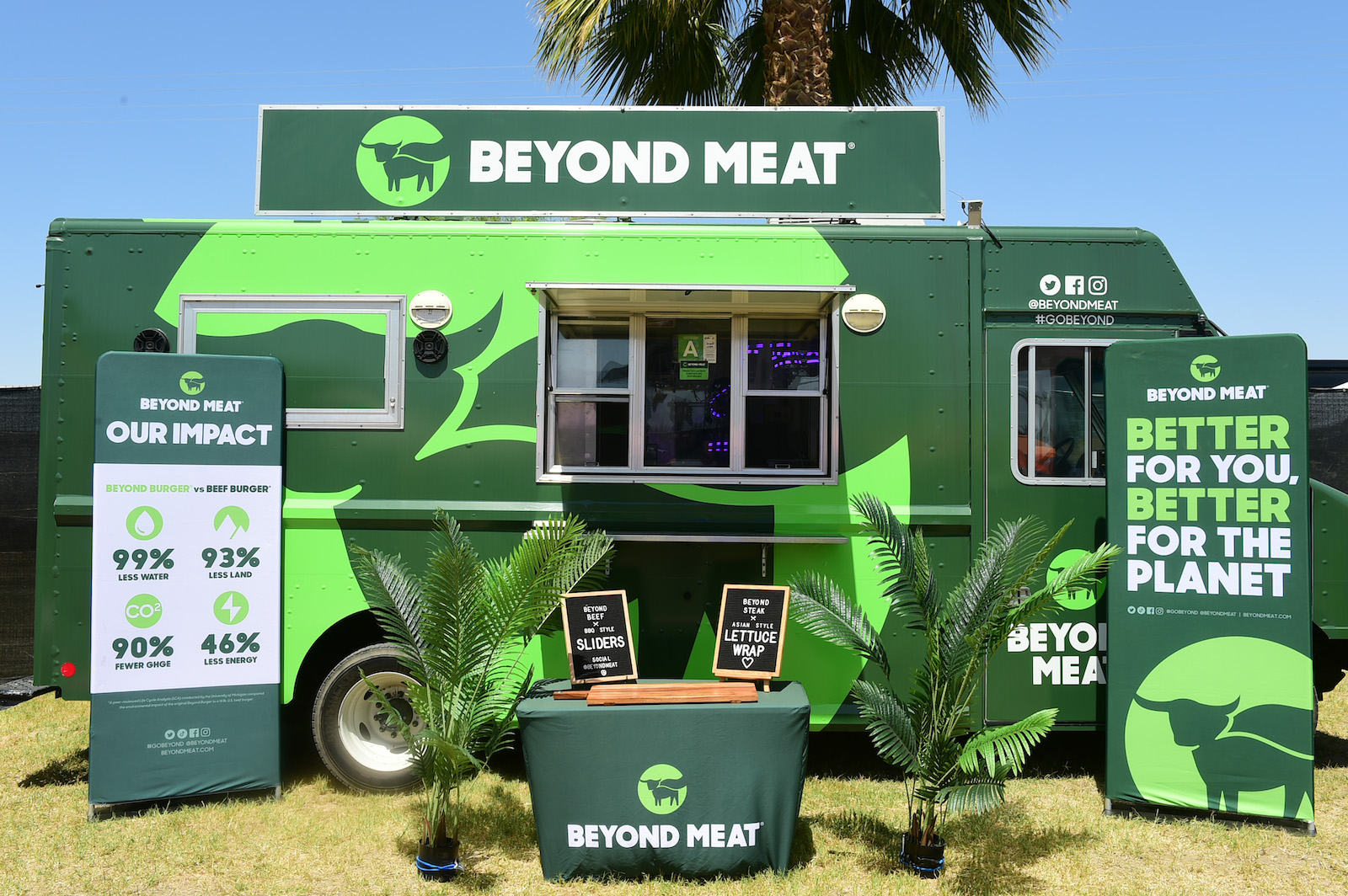
Veggie Grill, for its part, has closed several locations in recent months, but also plans to launch a franchise program. In the company’s early days, “The West Coast was really where we could put multiple Veggie Grills and make the concept work,” Pillan said. “Now we could put multiple Veggie Grills in Phoenix, Dallas, Houston, Atlanta, and Miami.”
Meanwhile, producers aren’t done fiddling with the recipes for fake meat. Scientists are honing techniques like precision and biomass fermentation to reduce the number of ingredients needed to turn plants into meat. One company, Meati, is marketing steak and chicken products made almost entirely from mushrooms, touting it as being simultaneously low in fats and high in protein, vitamins, and minerals.
All in all, the industry’s supporters aren’t that worried about the dire tone of the recent media coverage. “I still believe there is a lot of hype,” Hale said. “It’s a very nascent category, all things considered.” There remains a sense among proponents, much as there was 10 years ago, that meat made from plants could one day make a meaningful dent in the market for animal meat, living up to its many promises.
Consider the assurance that Brown, Impossible’s founder, offered to a group of kids four years ago when they toured his startup’s office to learn about his team’s invention: “I promise that by the time you are adults, the meat you eat will not come from dead animals,” Brown told the kids, who had donned white lab coats for the occasion. “You can come find me and beat me up if I’m wrong.”
*This piece has been updated to include a response from Beyond Meat.

